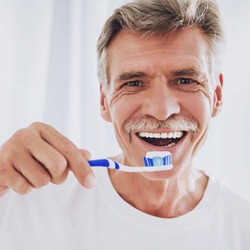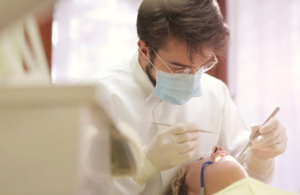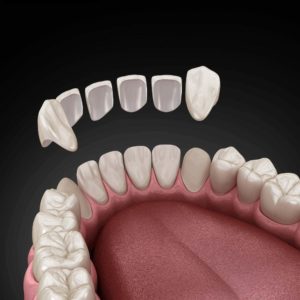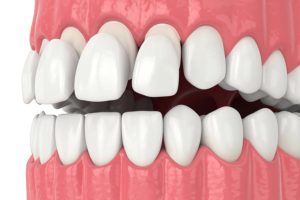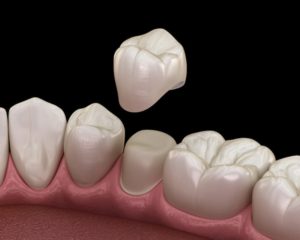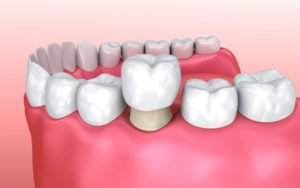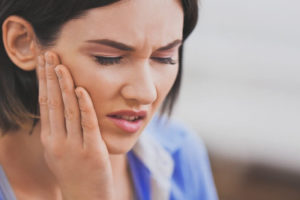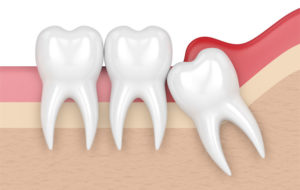Gaps in teeth, known as diastema, are a common dental condition. While gaps can appear anywhere in the mouth, they are most often found between the two front teeth. For some, a diastema is a charming and unique feature, while others may view it as a cosmetic concern. Understanding the causes of gaps and how they can change over time is essential for making informed decisions about oral health.

This article will explore why gaps may form, whether they change with age, and the available treatment options.
Do Gaps in Teeth Close by Themselves?
In some cases, gaps in teeth may close on their own, but this depends largely on age and the underlying cause of the gap.
- In Children: It’s normal for children to have gaps between their teeth as their primary (baby) teeth fall out and permanent teeth grow in. These gaps often close naturally when adult teeth come in.
- In Adults: Gaps in adult teeth are less likely to close on their own. Once the permanent teeth are in place, the structure of the mouth becomes more stable, meaning gaps are less likely to shift without intervention.
If you’re noticing a gap in your teeth, consulting a dentist is the best way to determine whether it might close naturally or require treatment.
Can You Close a Teeth Gap Naturally?
Many people wonder if there are non-invasive ways to close a gap between their teeth. Here are some points to consider:
- Lifestyle Adjustments: If the gap is caused by habits like tongue-thrusting or thumb-sucking, correcting these behaviors may prevent the gap from worsening but won’t necessarily close it.
- Exercises and At-Home Solutions: While there are claims online about using dental exercises or elastic bands to close gaps, these methods are not recommended. They can damage teeth and gums or lead to misalignment.
- Preventing Gum Disease: Maintaining good oral hygiene is crucial. Gum disease can cause teeth to shift, leading to gaps. Brushing, flossing, and regular dental checkups can help prevent this issue.
Ultimately, while natural methods may help prevent gaps from worsening, professional dental treatment is typically required to close existing gaps.
Why Are My Teeth Spreading Apart as I Get Older?

For some people, gaps in their teeth become more noticeable with age. This can happen for several reasons:
1. Gum Disease
Gum disease, or periodontitis, is a common cause of shifting teeth in adults. When gum disease progresses, it can damage the jawbone, causing teeth to loosen and spread apart. Symptoms include:
- Red, swollen gums
- Bleeding while brushing or flossing
- Receding gum line
If gum disease is suspected, seeking prompt treatment from a dentist is crucial to stop the condition from worsening.
2. Bone Loss
As we age, the jawbone naturally loses density. This can lead to tooth movement and create or widen gaps.
3. Teeth Grinding (Bruxism)
Grinding your teeth at night can wear down enamel and shift teeth over time, contributing to gaps.
4. Natural Changes in Alignment
Over the years, teeth may shift slightly due to daily wear and tear, causing gaps to form or widen.
5. Oversized Frenum
The frenum is the connective tissue between the upper lip and gums. If it is too large or thick, it can push teeth apart, leading to or worsening a gap.
Treatment Options for Closing Teeth Gaps
The good news is that there are multiple ways to address gaps in teeth. The right treatment depends on the cause, the size of the gap, and personal preferences.
Cosmetic Treatments
If your teeth and gums are healthy, these options focus on improving appearance:
- Dental Bonding: A tooth-colored resin is applied to the teeth to fill the gap. This is a quick and affordable option.
- Porcelain Veneers: Thin ceramic shells are placed over the front surface of the teeth to create a uniform appearance.
- Braces or Aligners: Orthodontic treatments like braces or clear aligners can gradually close gaps by moving teeth into the correct position.
Restorative Treatments
When gaps are caused by missing teeth or structural issues:
- Dental Bridges: A prosthetic tooth is anchored to neighboring teeth, closing the gap left by a missing tooth.
- Dental Implants: A titanium post is inserted into the jawbone to replace the missing tooth, preventing gaps from forming.
- Frenectomy: If an oversized frenum is causing the gap, a minor surgical procedure can correct this issue.
Gum Disease Treatment
If gum disease is the underlying cause, addressing the infection is the first step. Options include:
- Scaling and Root Planing: A deep cleaning to remove plaque and tartar from below the gum line.
- Surgical Intervention: For advanced cases, surgery may be necessary to repair damage and stop the disease from progressing.
How to Prevent Gaps from Getting Bigger

While some gaps may be inevitable, you can take steps to prevent them from worsening:
- Maintain Good Oral Hygiene: Brush twice daily, floss regularly, and use mouthwash to keep gums healthy.
- Visit the Dentist Regularly: Routine checkups can catch gum disease and other issues early.
- Avoid Harmful Habits: Minimize habits like grinding your teeth, biting your nails, or using your teeth as tools.
- Wear a Mouthguard: If you grind your teeth at night, a custom mouthguard can protect your enamel and prevent shifting.
- Address Misalignment Early: If you notice changes in your bite or the position of your teeth, consult your dentist promptly.
Does Diastema Always Increase with Age?
Not necessarily. In a healthy mouth with no gum disease or bone loss, gaps in teeth may remain stable over time. However, if you notice a gap growing larger, it could be a sign of an underlying issue, such as gum disease or shifting teeth.
Embracing the Gap or Seeking Treatment
For some, a diastema is a beloved feature that adds character to their smile. In many cultures, it is even considered a mark of beauty. If the gap doesn’t cause functional problems or discomfort, there’s no medical reason to close it.
However, for those who feel self-conscious or experience oral health issues because of a gap, there are effective solutions available. A consultation with your dentist can help you decide the best approach for your needs.
Conclusion
Gaps in teeth can be a natural part of your dental structure or a sign of underlying issues like gum disease. While some gaps may close naturally during childhood, gaps in adults are less likely to resolve on their own. Age, lifestyle, and oral health all play a role in whether gaps widen or remain stable.
Whether you choose to embrace your diastema or explore treatment options, understanding the causes and solutions is key to maintaining a confident smile and healthy teeth.




